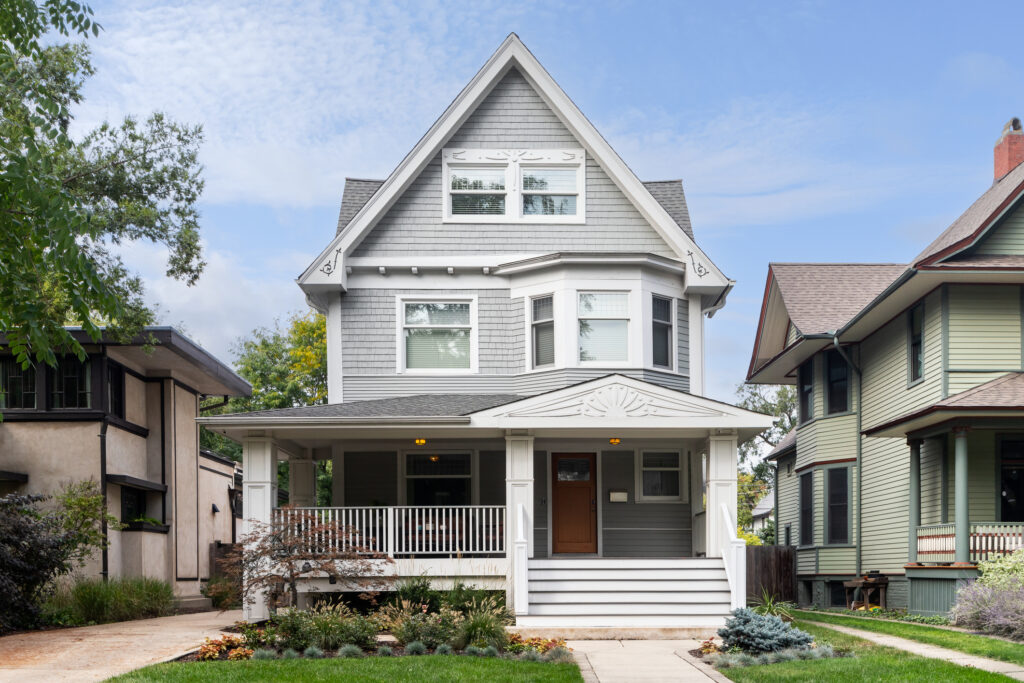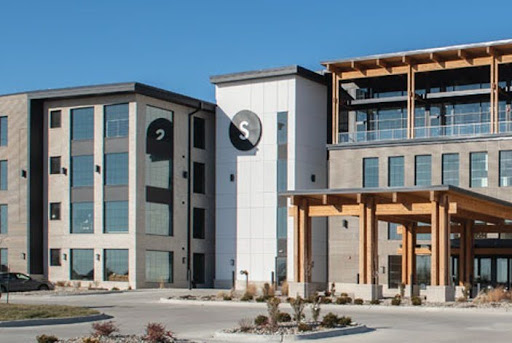Problem properties dot downtown

Kurt Mumm has seen a good thing go bad and a bad thing show signs of going good. And his head isn’t spinning.
Mumm is president of the Des Moines office of NAI Ruhl & Ruhl Commercial Co. The sure thing that went bad was his ownership with other investors of the Hub Tower at 699 Locust St.
That thing showing signs of improvement is the Equitable Building at 604 Locust St., where his company is a court-appointed receiver. Ruhl & Ruhl markets the building, keeps it in good working condition and, for the last several months, has seen a healthy flow of potential occupants.
The buildings are separated in age by about 60 years and in value by several millions of dollars. What they have in common is that for now they are problem properties, among seven downtown Des Moines buildings that in recent years have been placed under the operation of receivers, returned to the banks that saw loans go bad.
Some of the properties have turned into success stories, of sorts. Ruhl & Ruhl is the property manager for 700 Locust St., home to the Greater Des Moines Partnership and Downtown Community Alliance, a parking garage, a restaurant and other retail shops.
It is bank-owned, and Ruhl & Ruhl managed the property while it was under receivership before it was bought at a sheriff’s sale by its original lender.
Other properties have not enjoyed such success.
Hub Tower was the subject of a story in the May 17 Business Record. The building was placed in receivership in November 2009 after Mumm and other investors decided “it just didn’t make sense for us” to continue making payments on a building that was losing tenants. By the end of this year, it will lose $3 million in rents when Aviva USA and its affiliate, Aviva Investors Inc., move out.
Mumm said the $18 million investment in Hub Tower four years ago seemed like a sure thing. The building was 100 percent occupied, and Mumm and partners took on a non-recourse loan, meaning that if the deal went bad, the ownership group, Hub Tower LLC, stood to lose the building but not personal investments.
However, Aviva USA decided to build a new headquarters in West Des Moines, CitiMortgage Inc. pulled out, then Aviva Investors decided to move to the Davis Brown Tower.
Hub Tower is being marketed to potential local and national tenants by receiver Donald Shapiro of Chicago and Iowa Realty Commercial, both of which believe the building needs to be filled with tenants before it becomes an attractive investment.
Investments in downtown could be a few years away.
Matt Anderson, economic development administrator for the city of Des Moines, is optimistic that Hub Tower and other troubled properties, such as the Midland Building at 206 Sixth Ave. and the Equitable Building, will find investors in short order.
“I think all three could sell by the end of the year,” he said.
Regarding the Equitable Building, Mumm said he has been surprised by the amount of interest shown by potential tenants and possible buyers.
Great Southern Bank won a $9 million judgment in March against owner Bob Knapp and his Equitable LP development company for a loan that was in default. In addition, Knapp and a business partner face federal charges resulting from the improper removal and disposal of asbestos from the building.
The property probably will be put up for auction at a sheriff’s sale in the next 90 days, Mumm said, with Great Southern being the most likely candidate to buy it back.
Despite that, Mumm said, the building is marketable.
“We’ve been very impressed with the level of activity we’ve seen at that building,” he said. “We’re getting some good looks from some good tenants.”
Currently, the Equitable Building needs some mechanical improvements, such as the updating of an antiquated elevator.
However, the building also has a difficult-to-define appeal. As one former occupant, Paul Ramsey, a California businessman who used to keep an office there, said recently, “Every time I walk through that building, I’m stopped by the smell; maybe it’s that old wood. It just makes me feel good.”
One building on the property map has gone in and out of receivership, but it still has problems.
Keck City Center at 500 Grand Ave. was generating income, and its owner, Dan Stanbrough LC, was making payments on a loan with Regions Bank when the bank sought to foreclose on the property, claiming in part that the limited liability company had not fulfilled conditions of the loan.
A Polk County judge appointed Iowa Commercial Realty as receiver, but its involvement was short-lived.
Dan Stanbrough LC filed to reorganize its finances and continue operating the building under federal bankruptcy law in April. Under an interim order, the company will manage the building and use receipts to continue to pay its mortgage. The company also is in arrears on more than $300,000 in property taxes.
However, Dan Stanbrough LC has created equity in the property and has tenants under contract, including the Downtown School.
While the passage through receivership is working out, for the time being, at Keck City Center, Mumm noted that receivers help put some distance between banks and their debtors.
“It helps to have a neutral party in charge,” he said.
Though several downtown buildings fall into the troubled category, part of the reason for that is the overall success of Greater Des Moines as a business center.
Tenants were lost or will be lost as the result of new construction, such as the Aviva headquarters in West Des Moines and Wellmark Blue Cross and Blue Shield’s headquarters,under construction in the Western Gateway Park area.
Jake Christensen, who has three projects under way or about to start downtown, pointed out that a few distressed buildings do not mean that the central business district is losing its vitality.
He points out that 77,000 people still work downtown, and he expects that number to increase substantially.
“At the end of the day, that space will fill,” Christensen said. “I would venture to guess that in five to seven years, the office population will be closer to 85,000 or 90,000. It will be painful in the interim. It’s a growing pain.”
While some of the troubled properties are the result of aggressive lending, the obvious issue facing other properties, such as Hub Tower, is the movement of jobs into new buildings. After Aviva and Wellmark complete their transitions, it is expected that more than 1 million square feet of office space will have been vacated.
For companies such as Knapp Properties Inc., that means that every office in the old Central Life building at 611 Fifth Ave. will be empty. The structure, which is owned by a Knapp company, currently is home to Aviva employees.
Gerry Neugent, president and chief operating officer for Knapp Properties, said his company is aggressively marketing the building and considering alternative uses, even toying with idea of converting it to a hotel.
More than likely, the property will be leased by multiple tenants, rather than one large user, he said.
He is optimistic that tenants will be found for the Central Life building, not to mention other buildings that will lose tenants.
“I’m not as fearful about downtown as some people,” Neugent said.
Knapp Properties also is seeing activity at other properties it owns and manages, signaling that the overall econcony is improving.
American Equity Life Investment Life Holding Co. has doubled the amount of office space it occupies in West Lakes, indicating, among other things, that the company is adding workers.
Des Moines investment banker Eric Lohmeier was a little more cautious.
“The snap back in stock prices was based on cost cutting, so what does that tell you for going forward? What does that tell you about the demand for commercial real estate going forward? That’s just something we’re going to have to muddle our way through and deal with. There’s no way to sugar coat it,” he said.










